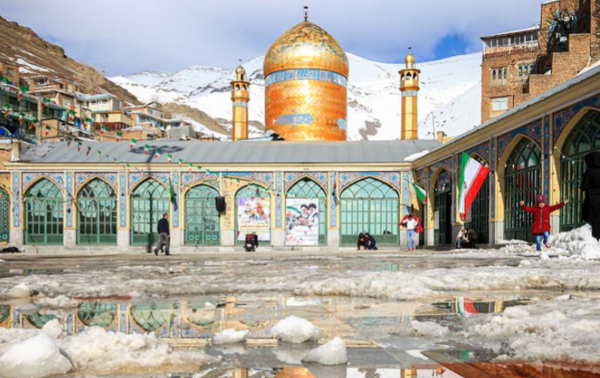Unity between Muslims is considered as a crucial matter in Islam. Thus, the Quran compares discordance and disunity among Muslims to “a pit of the Fire”: "And hold firmly to the rope of Allah all together and do not become divided...And you were on the edge of a pit of the Fire, and He saved you from it." (3:103). Looking at the former nations, we find them honored and glorious when they were united, but disgraced and vulnerable when they fell apart [3]. Hajj, as one of the obligatory rituals in Islam, is one of the ways which encourages unity among Muslim nations. Let’s see how.
Every Muslim is Welcomed to Hajj, No Exception!

There is no other ritual, social, or political program in Islam greater than Hajj, where every Muslim from any corner of the world finds the chance to approach others and communicate with them freely.
Besides, it provides the opportunity to strengthen the emotional, social, and religious bonds with other Muslims. Hajj is a social kind of worship that represents the glorious Islamic unity through its numerous participants of various nationalities, skin colors, languages, and sects who are like brothers (49:10). They have left behind the religious conflicts, and follow the same intention, perform the same actions, and wear the same outfit.
Hajj Brings Muslims Power
In Surah Ma’idah, it is stated that coming together around Ka’aba makes Muslims powerful (5:97). In other words, the aim of Hajj for Muslims is not just performing some physical actions. It is to bring Muslims of different races and origins together to get acquainted, communicate with each other, initiate political, economic and cultural relations, and find themselves closer to each other despite their many differences.
Besides, Islam calls “every” Muslim to Hajj, which means that everyone, regardless of origin and skin color, is invited to the land of Allah. It reminds us of what the Quran says; that there is no superiority except rightfulness and the most righteous, is the noblest in the sight of Allah (49:13). This is an important message, especially for the less powerful Islamic nations, causing them to feel more confident and encouraging them to communicate with other Muslims, which ultimately results in a more united Muslim society.
Muslims Are Like the Hands which Help Each other

In a discourse that Prophet Muhammad (PBUH&HP) has given during one of his Hajj pilgrimages, he described Muslims as brothers, and like a single hand (a united community) when facing the enemies [2]. Emphasizing brotherhood among Muslims during Hajj shows that this ritual was a good representation of unity. Thus, Muslims are expected to support each other and be close to each other as they are during Hajj.
Two Axes of Solidarity in Hajj
During Hajj, Muslims learn and practice solidarity in two main areas:
1. Ideology and Principles
During Hajj, Muslims can exchange ideas with Muslims of other sects. In the early years of Islam when non-Muslims also went to Mecca for their religious rituals, Prophet Muhammad (PBUH&HP) took this opportunity to introduce Islam to them and exchange ideas with them to spread his message and find followers in other cities, too. In Hajj, many misunderstandings and ideological conflicts can be discussed among Muslims, and the real beliefs of different sects about the others can be clarified. Hence, the wrong prejudgments and hostilities can be rectified. According to Imam Sadiq (AS), Hajj is a means to gather all Muslims from east to west to let them get acquainted with each other and achieve consensus [3].
2. Social and Political Matters
Through the communications that Muslims have during Hajj, they find out the social achievements and national advances in other Muslim nations and might decide to follow their path. They also learn about the social problems and deficiencies of others and might find solutions by further cooperation. Moreover, they become aware of the real political situations of other Muslim countries, especially the difficulties that sometimes other countries impose on them. For instance, one of the goals of Hajj is to announce the support of Muslims for Palestinians and those oppressed in the world. This helps Muslims to become more united against common enemies of Islam.
To summarize, Hajj is a time that a Muslim finds him/herself in the accompaniment of millions of others who wear as simple as him/her and who repeat the same words as him/her as they move around Ka’aba. This is where “one” is transformed into the totality of ‘people’, establishing the universality of the Islamic community with the goal of approaching Allah.
References:
[1]. Imam Ali (AS), Nahj-ul Balaqa, Infallible 192
[2]. M. B. Majlesi, "Bihar al-Anwar", vol. 21, p. 105.
[3]. Shaikh al-Hur al-Aamili, “Wasa’il al-Shi’a”, vol. 11, p. 14


















